Ben and Suzie Crosse raise beef cattle in Hawke’s Bay. What is the best part of farming? Ben says, “Spending time with the animals. The money is a sideshow.” The worst part? Suzie says, “Having a thousand animals is like having a thousand children… there’s so much to worry about.”
It couldn’t be more apparent that this family cares for their animals. Ben can read his herd’s body language like you can read your dog. Their daughter bottle feeds the calves that don’t take to their mom.
There is a deep vein of humanity and pragmatism at the core of how the farmers we’ve met in New Zealand treat their animals. When asked why they’re so focused on animal welfare, Ben immediately offered many reasons: because it gives him satisfaction, because he genuinely cares about the animals, and because there’s no point in giving them good feed if they are going to metabolize it with nervous energy.
Why doesn’t he use dogs with the cattle? Because if the cows get angry at the dogs, the calves will learn anger. He doesn’t want his cattle to learn anger.
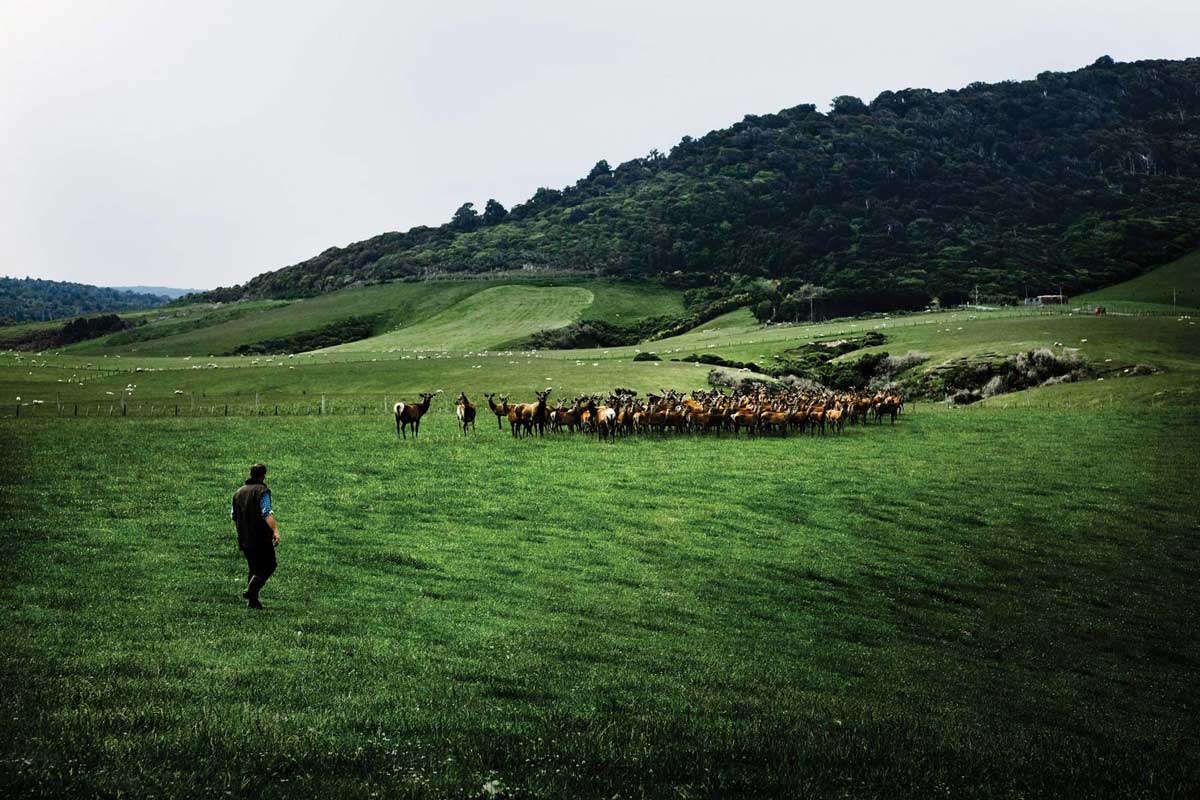
“It’s all I’ve ever wanted to do,” Robynne O’Connell says of farming. "It has its good and bad days, and Mother Nature’s one to throw things at you. So you have to enjoy working with animals and the land, and you have to be adaptable.”
Robynne and her husband Chris farm deer and sheep in Orepuki, on the southernmost coast of New Zealand. “We farm a bit more naturally than in other parts of the world,” says Chris. “In New Zealand we have a clean, green image and in reality it’s true because of the way we farm naturally, with our animals outside and not housed indoors.”
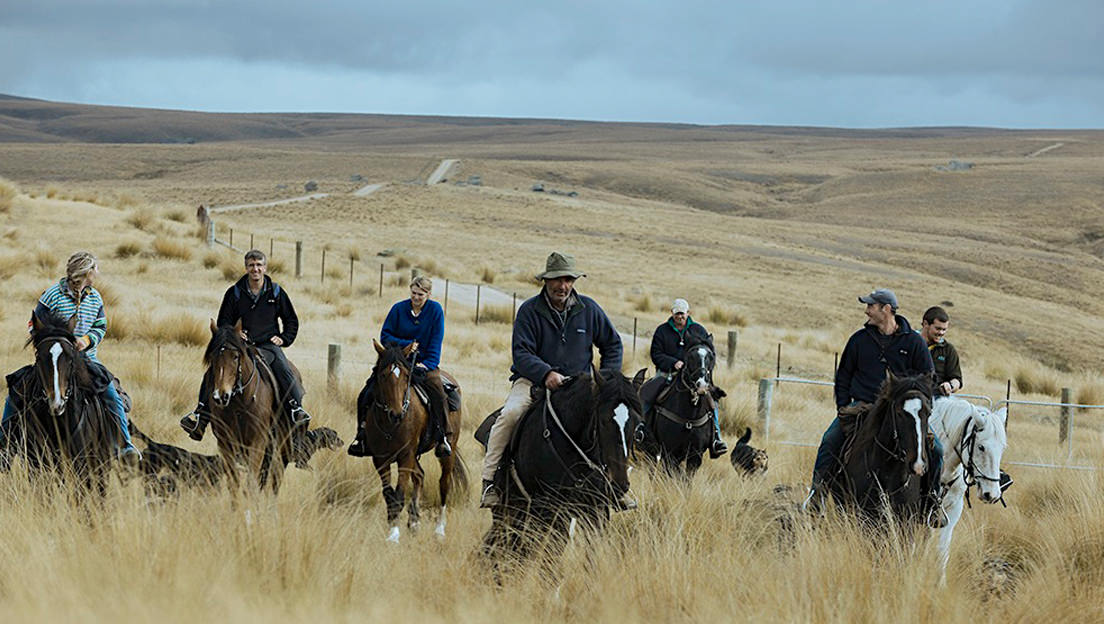
There are plenty of things the Hore family hasn’t felt the need to change much, over the last century – like mustering their herds on horseback.
When it starts getting too cold for the sheep to stay up in the rugged hill country, and they need to be moved down to warmer pastures for the winter, the mustering happens – all hands on deck, neighbors pitching in, everyone on horseback for three or four days, with 30-odd working sheepdogs helping out.
“A lot of people don’t use horses and camp out now,” says Jimmy, “It’s all four-wheel drives and helicopters. The old horses is a dying art. But these young’uns really enjoy it – a hot meal, have a few drinks, play cards.”
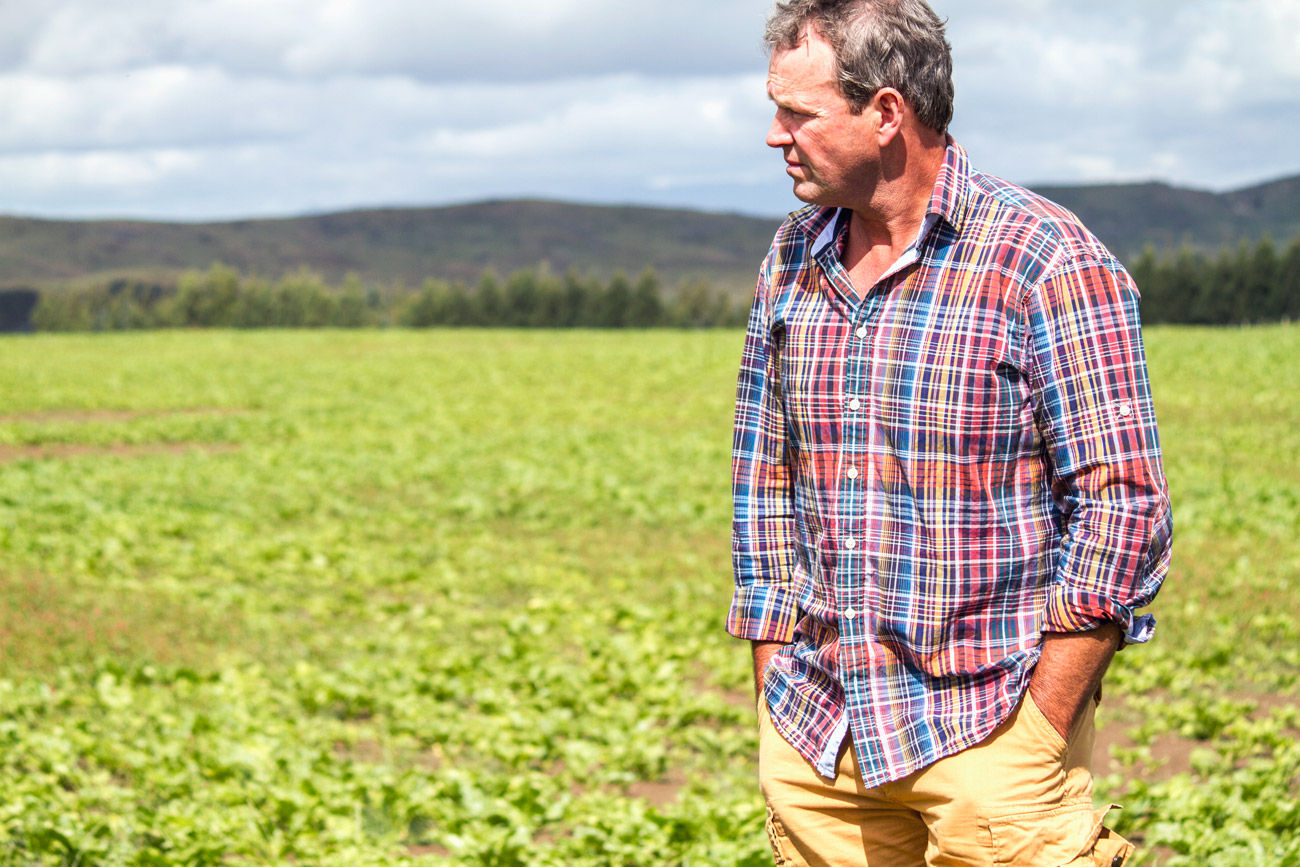
“Farmers in New Zealand are traditional but progressive,” says Justin Marx. “They do some of the most traditional work in the world, but they’re always trying to figure out how to do it better, how to leverage science and technology in order to improve.”
We work with Silver Fern Farms, a collective of family farms in New Zealand, and they’re tracking every steer to figure out how diet, genetics, and lifestyle affect the quality of their beef. They’ve done huge amounts of research into what people want from their beef, and they’re making adjustments all the time to move closer and closer to delivering the best.
Ceri Lewis, shown here, manages the cattle and sheep farming operations at lovely Mount Linton. He’s been using this data to make small changes with big results. He’s retrained animal handlers and transporters, stopped mixing herds of cows, and “eliminated so much of the stress the animals experience, that the beef quality has gone way up.”
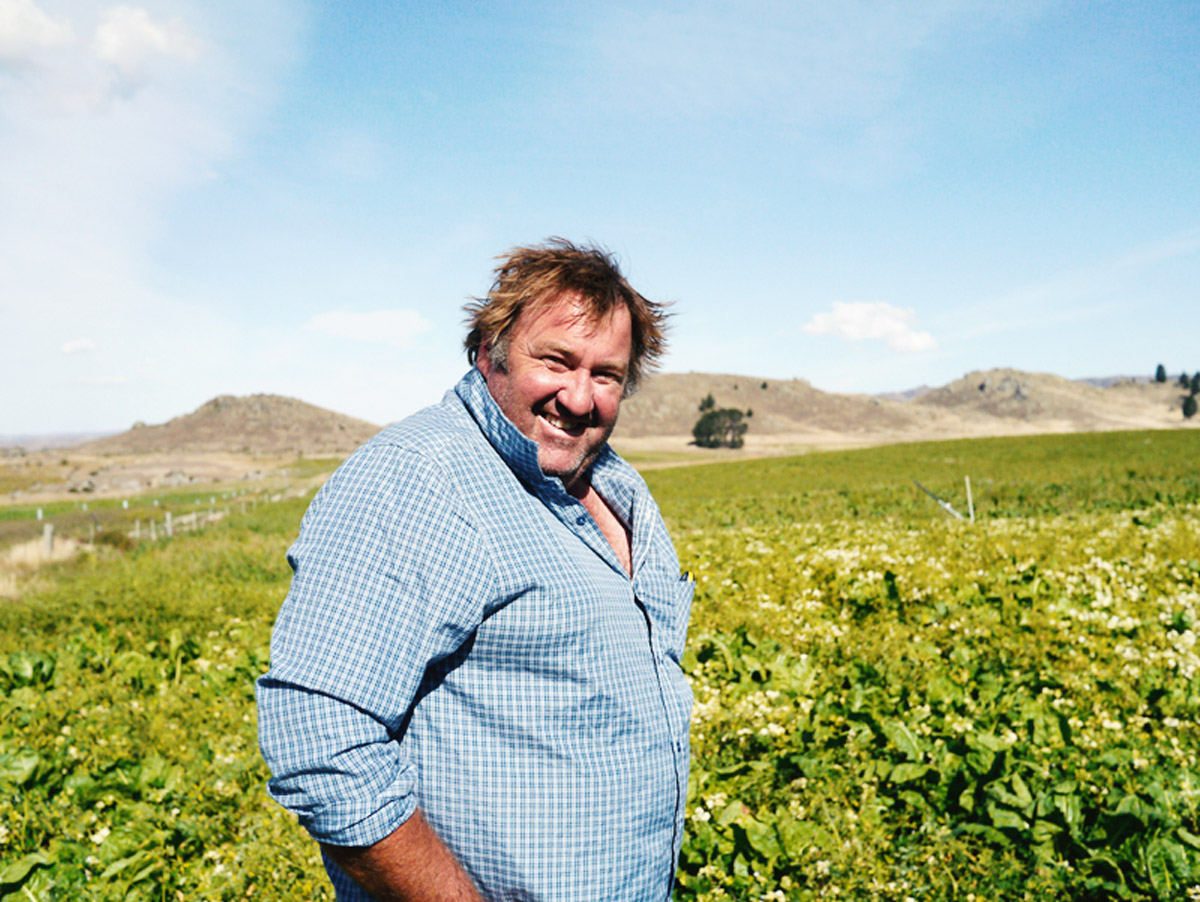
Hamish Cameron – “Hotty” to his friends and neighbors – farms cattle and sheep just north of Omakau, in the center of the South Island. “I went to America shearing sheep for ten years,” he said, “mainly in Wyoming, but also to the feedlots outside Fort Collins in Colorado, and Nebraska, North and South Dakota, Montana. I used to go to America, Wales, western Australia, and then back here every year, working. But then the winters got too cold for me in Wyoming – I got too old and soft. And I kept feeling drawn back here.”
When asked how the operations he saw compare to New Zealand, he said, “I do like the clean grass-fed system we’ve got. I’m not knocking the feedlot system; it just has to be done sometimes. But I do like our nice clean waterways, and how we keep things good and green.”
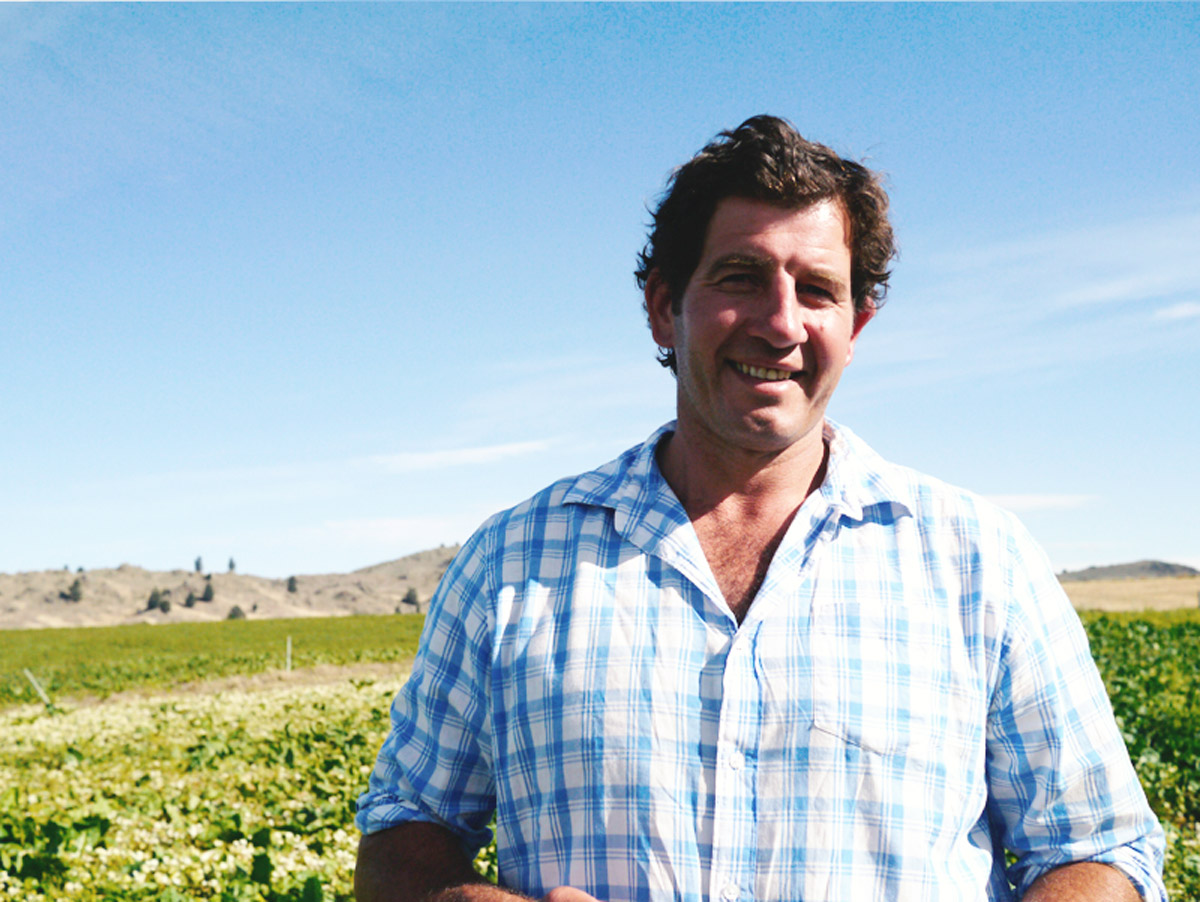
"There's no secret to these girls and boys," said Simon Maling, gesturing out at the herd of cattle we were looking out at. "Just keep them fed, so they can make a good meal one day."
Simon is a retired New Zealand rugby union footballer and former All Black, who hung up his boots in 2009 to farm his wife Lucy’s family farm. He was a city boy – it’s her family that’s been farming for years – but he's been quick to pick it up. His understated way of describing what he does makes it all seem pretty simple – right up until he starts discussing the pasture management practices that are necessary to ensure his cattle get all the nutrients they need, avoid bloat, stay healthy, rotate through new growth strategically, maintain their social hierarchies, and stay well fed year round, throughout changing seasons.
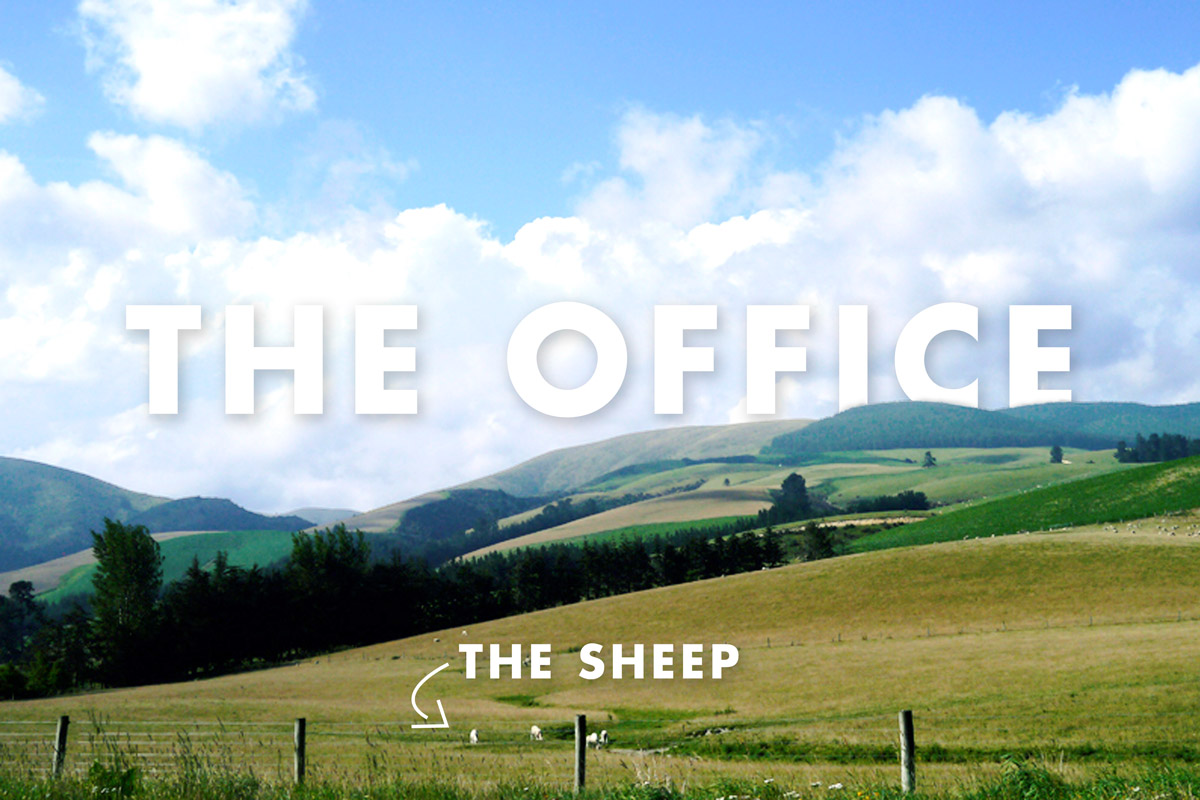
There’s a reason the Lord of the Rings movies were filmed in New Zealand – most of the country looks like an epic filmset, packed with sweeping majestic vistas or the gently rolling green hills of the Shire.
The farmers we know in New Zealand do go to work every day in some of the loveliest landscapes our planet has to offer. And some of these farms are huge, which means…
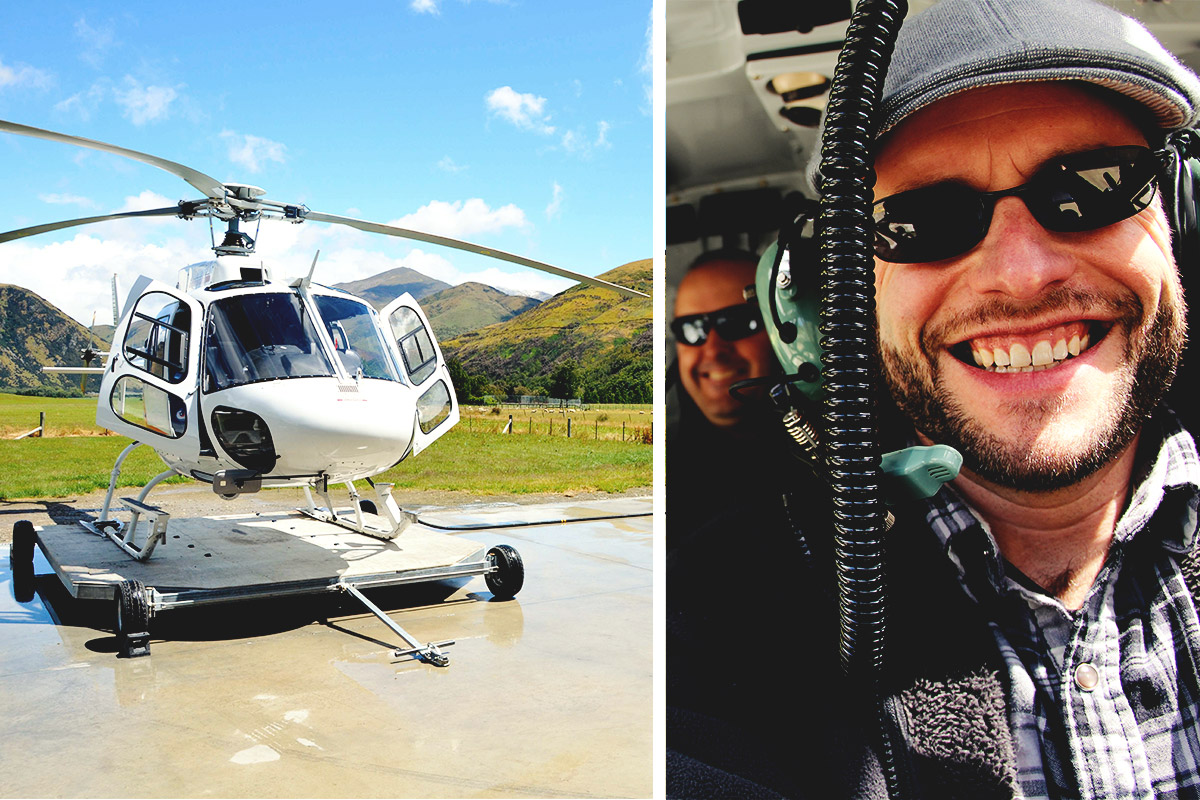
New Zealand farms can span thousands of acres, stretching from steep mountain slopes down to rolling pasturelands. So the commute to work is a little different than taking the freeway. Instead, farmers walk their land, drive rugged 4x4s, and even use helicopters to keep an eye on their herds from day to day.
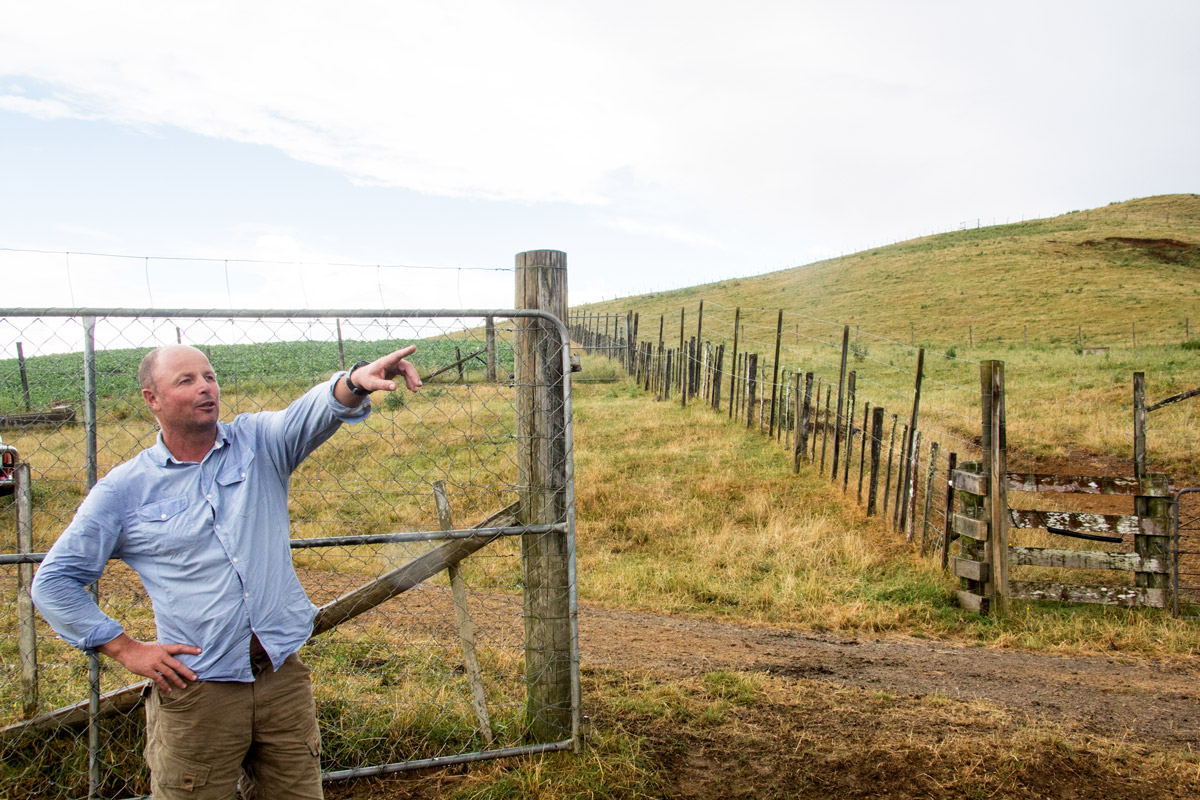
“Good farm management techniques are paramount if you want to be sustainable in business and have as little impact on the land as possible,” says William Oliver.
He and wife Karen raise deer, cattle, and sheep on the gorgeous rolling hills of Rangitoto on the North Island of New Zealand. They leave 500 acres of their land unused and untouched, to remain a habitat for wildlife. “I think it’s a great thing that farmers can do. Over 10% of our business is effectively in reserve for wildlife. Sustainability for us is about the business, the family, the environment.”
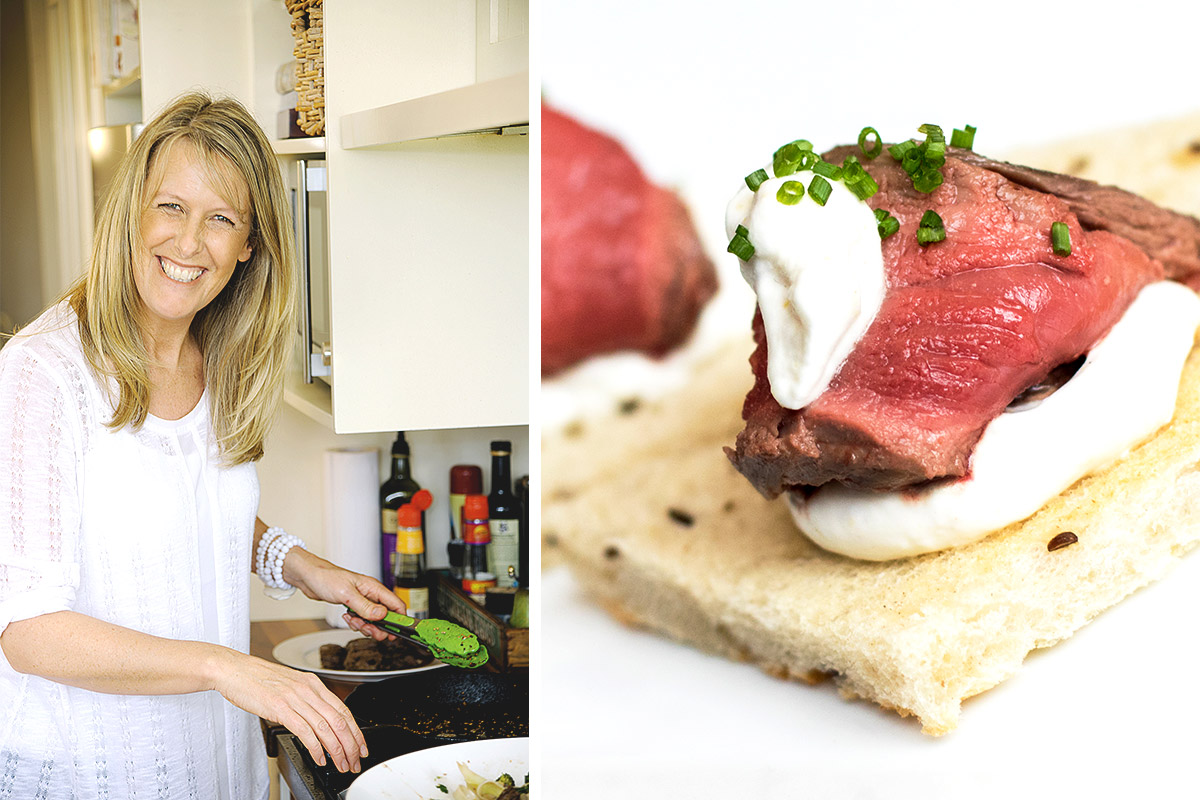
One of the basic principles of great cooking: Source the best-quality ingredients, and let them shine.
Farmers in New Zealand have taken this tenet to heart. Whether they’re simply salting lamb racks and then grilling them to a perfect medium rare, or putting crisp caramelized crusts on big juicy beef roasts, the food that farmers serve in New Zealand is totally swoon-worthy.
And some farmers, like Karen Oliver, could hold their own in any restaurant kitchen. “Sometimes people are a bit hesitant to try venison,” she says, “because they may have once had wild venison, which can be gamey and tough. But farmed venison tastes very different and not gamey at all. It’s really, really tasty and tender.”